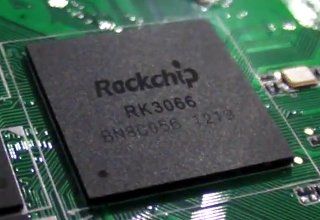Rockchip Licenses CEVA’s Vision Processor IP For Deep Learning

Rockchip, one of the largest fabless semiconductor companies in China, announced that it will license CEVA’s vision processor so it can enhance its chips with vision and deep learning acceleration. This January, the CEVA-XM4 processor won Linley's "Best Processor IP" of the year 2015.
As more companies start focusing on deep learning, it’s only inevitable that we’re going to see custom deep learning chips not just for data centers, but also for embedded devices. Rockchip seems to want to be one of the first to take advantage of this trend and enable use in all sorts of devices, from smartphones to smart cameras to drones to robots.
Beyond deep learning, the CEVA-XM4 vision processor can be used for advanced computational photography, which could help smartphone cameras surpass their physical limitations, but also for video analytics, augmented reality and advanced driver assistance systems (ADAS). Additionally, Rockchip intends to use the CEVA-XM4 for low-light enhancement, digital video stabilization, object detection and tracking, and 3D depth sensing. These tasks can be offloaded from the CPU and GPU, making Rockchip’s SoCs significantly more efficient for this type of operations.
"Rockchip is determined to deliver ever-more compelling solutions for mobile and consumer devices, using the best-of-breed technologies available,” said Feng Chen, Chief Marketing Officer of Rockchip. “The CEVA-XM4 imaging and vision processor and comprehensive software offering allows us to truly embrace the potential of computational photography, computer vision and machine learning in our product designs, seamlessly handling even the most complex use cases and algorithms,” he added.
Rockchip is actually not a new customer of CEVA IP. The company has previously licensed CEVA DSPs and connectivity IPs, including RivieraWaves Bluetooth and Wi-Fi products.
The CEVA-XM4 platform that Rockchip licensed now includes a vector processor that’s been optimized for vision and deep learning applications, as well as an Application Development Kit to make it easier for developers to program the CEVA-XM4. For embedded systems that target deep learning, the CEVA Deep Neural Network (CDNN2) software framework is also available to developers. CEVA promised that the CEVA-XM4 systems can deliver a certain level of performance for a fraction of the power consumption of GPU-based systems.
Stay on the Cutting Edge
Join the experts who read Tom's Hardware for the inside track on enthusiast PC tech news — and have for over 25 years. We'll send breaking news and in-depth reviews of CPUs, GPUs, AI, maker hardware and more straight to your inbox.
Most Popular


